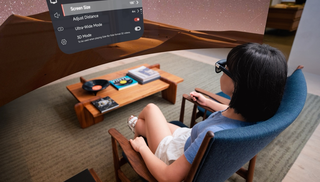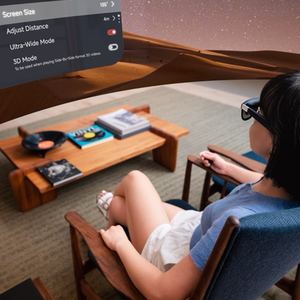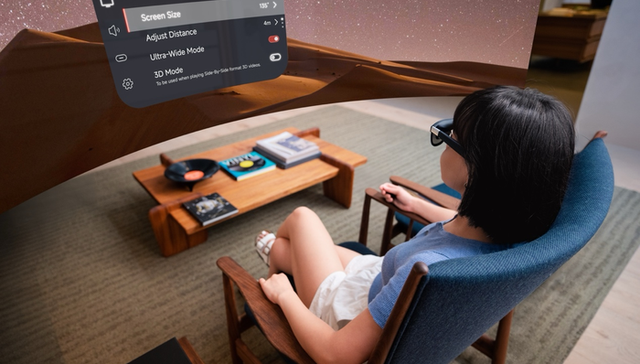by ZHA Qinjun
A decade in, the augmented reality (AR) glasses industry remains a high-stakes gamble where few have made money—except perhaps Qualcomm. Despite early bets by nearly every major Silicon Valley giant, commercial success has proven elusive. Still, believers like Xu Chi, founder and CEO of XREAL, say the real fight is only just beginning—and it's largely invisible.
"If even the top tech giants have failed at something for ten years straight, there are only two explanations," Xu told Jiemian News. "Either it's insanely hard, or it's a junk market."
Xu argues it's the former. From optics to displays, chipsets to OS design, and interaction to ecosystem building, AR glasses involve a complexity that brute force cannot resolve. Giants with deep pockets have struggled to close the loop—especially with consumer adoption hinging on both practicality and necessity.
Yet the industry has never gone cold. Entrepreneurs continue to dive in, and tech titans haven't exited. "Everyone still believes this is the right track," Xu said. "And it's exciting because this is the terminal that will replace smartphones."
That replacement, he believes, will be catalyzed by AI. Just as multitouch ushered in the smartphone era, today's advances in large language models and multimodal AI could define a new wave of human-computer interaction—this time led by voice, gaze, and contextual awareness. Glasses, he says, are the natural interface.

"Compared to two or three years ago, the biggest shift is AI," Xu said. "It could solve AR's two biggest bottlenecks: clunky 3D interaction and poor information filtering."
The result: a revived market and what some are calling a "Hundred Glasses War." Since early 2024, Chinese giants like Huawei, Baidu, Xiaomi and Alibaba have all launched products, while Meta's Ray-Ban collaboration has stirred global attention.
Xu remains skeptical. He calls the frenzy a "phantom boom," pointing out that much of it is driven by superficial differentiation and supplier integration, especially in China and at trade shows like CES. "This hype will cool, but the momentum will stay," he said. "AI gives those with real underlying tech a shot at breakthrough."
Still early days
Xu likens today's AR industry to smartphones before the iPhone—or even earlier. "We're still in the first half of the first half," he said. "It's not the endgame. If a big player can easily disrupt the market now, then we deserve to lose."
For now, he believes XREAL still holds a lead in chips and optics. Whether that moat can hold against giants like Xiaomi and Huawei, who are now building in-house, will depend on whether XREAL can maintain its innovation speed.
He notes that while Xiaomi's new smart glasses are among the most polished in the market, they're still far from what consumers expect in a daily-use product. "People may buy them out of curiosity, but that gap between expectation and experience is still there—and it's not something hardware tuning alone can fix."
Xu expects the real shift won't happen until 2027 or 2028, when products can finally rival smartphones in experience and reach tens of millions of users. "The next iPhone moment will come when AI agents are no longer just smart kids in your glasses, but actual assistants—like a 25-year-old living in there."
Below the surface
To get there, players will have to win what Xu calls the "underwater war"—a slow, expensive battle of infrastructure and innovation. That includes building better display systems, solving comfort and battery life, and training AI models that can understand the world in 3D.
He points to Google as the current leader in AI's spatial capabilities, thanks to its use of YouTube video data in training. And unlike its previous failed attempts at Glass, Google is now taking a platform approach, working with partners like XREAL instead of going solo.
"We're not just adapting to their software; we're shaping the product together," Xu said.
True mass-market success, he adds, will require a winning combo of scale, user experience, and financial sustainability—without relying on subsidies.
"Ray-Ban Meta is the only product to reach a million-unit scale, and that was heavily subsidized," he noted. "No Chinese company has done that yet."
From tech race to brand war
Xu believes the shift from the "first half" to the "second half" of AR will be marked by a move from hardware innovation to consumer mindshare. The fight will no longer just be about specs and chips, but about who can become the default in users' minds.
"That's when brand and marketing matter," he said. "And when the giants will come in full force."
Until then, startups like XREAL have time—but not much. "In innovation-led industries, timing is everything," Xu said. "You can't miss a step."





